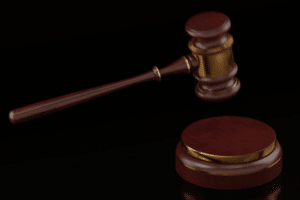Robert Menendez, aka Bob, is a US senator who is very skeptical about Bitcoin: he has repeatedly called for strict regulation of crypto in the past, accusing Bitcoin users of being largely criminals.
Now it is Menendez himself who is being accused of being a criminal, by the U.S. Attorney for the Southern District of New York.
Who is Bob Menendez and why he is calling for regulation of Bitcoin and crypto
Robert “Bob” Menendez is a Democratic U.S. politician who has been a senator for the state of New Jersey since 2006.
He is part of that wide array of Democratic politicians opposed to cryptocurrencies, and in favor of strict regulation of these new financial assets.
He is a member of the Banking, Housing and Urban Affairs Committee, the Senate Finance Committee, and the Foreign Relations Committee.
In the past he was one of the accusers of Facebook when Mark Zuckerberg was heard at a hearing regarding the Libra stablecoin project.
He has also on several occasions accused cryptocurrency users of being de facto criminals, especially because of the alleged use of these instruments for money laundering.
In November last year, after the FTX fiasco, he publicly asked Congress and regulators to step up efforts to determine what regulations were needed to ensure the protection of investors and the financial system as a whole.
Allegations of corruption
Menendez’s fight against the use of cryptocurrencies for criminal purposes, such as money laundering, clashes with the charges brought against him by U.S. Attorney for the Southern District of New York Damian Williams.
In the DA’s official statement, Menendez is accused of agreeing to use his position to benefit the Egyptian government in exchange for hundreds of thousands of dollars in bribes paid to him and his wife Nadine Menendez. In addition to cash, he also allegedly received gold bars, and a luxury convertible.
In June last year, the FBI executed a search warrant at the senator’s home in New Jersey, during which they found many of the fruits of this alleged bribery scheme, such as the gold and the convertible. More than $480,000 in cash was found in the house, much of it stuffed into envelopes and hidden in clothes, closets and safes, as well as $70,000 in cash in his wife’s safe deposit box.
According to Williams’ allegations, Menendez allegedly used his power to protect the interests of the Egyptian government by carrying out a series of violations of his official duties, such as improperly pressuring a U.S. Department of Agriculture (“USDA”) official to try to protect a trade monopoly granted to Egypt.
The paradox
The paradox of this story is that a U.S. senator who apparently would not have served the interests of the U.S. and its citizens, but in this case those of Egypt, asked the U.S. itself to protect its citizens from cryptocurrencies.
While he himself was not protecting U.S. citizens he was asking others to do so, based moreover on a complete misconception of the new financial assets based on the new blockchain technology.
Indeed, the cash and gold he held are precisely untraceable financial assets, while on-chain transactions are all public and fully traceable.
Combating money laundering must necessarily also come through combating the use of large transactions in cash, or in untraceable assets such as gold bars.
Now Menendez, who has nonetheless denied all charges, faces up to 20 years in prison.
Crypto regulation and Bitcoin
Regardless of this matter, however, there is still too much uncertainty in the US about crypto regulation.
In some countries, such as those in the European Union, specific laws regulating cryptocurrencies have already been passed, while the U.S. lags behind in this respect.
The stalemate is probably also due to the ongoing clash between Democrats and Republicans regarding the rigidity with which they would like to regulate these new financial assets.
Many Democrats like Menendez would like to see very strict regulation that would in fact limit their use, while several Republicans argue that this would also and especially limit the competitiveness of U.S. companies in providing crypto services to Americans, and to the whole world.
In fact, what should be the main crypto hubs in the U.S., namely Miami, New York, and Silicon Valley, are struggling to establish themselves as such, while instead, for example, tiny El Salvador is increasingly becoming the go-to crypto hub for the U.S. market.
There are many U.S. crypto operators, led by Coinbase, calling for regulation that does not kill innovation and competitiveness, such as that recently approved by the EU.
Much will depend on who wins next year’s presidential election, since if a Democratic president is elected again there is a risk that the Democrats’ opposing position could take over.


